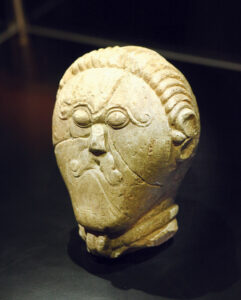Healing the Wasteland (but also the difference between Hollywood Heroes and Real Heroes)

“I’m not living, I’m just killing time”
-True Love Waits, Radiohead
“Once people realized that, ‘Hey, we’re going to be left on Earth here, and everything is going to hell quickly,’ sci-fi soon became about our own self-destruction.”
-Edgar Wright, director of Shaun of the Dead
The tag team of writer/director Edgar Wright and writer/actor Simon Pegg is proof of the vast importance of details in cinema. It is the reason why their underfunded indie Rom-Com Shaun of the Dead is held up as the true successor to George A. Romero’s series as opposed to the now forgotten Resident Evil films. Case in point, Shaun is a great study in heroism and how to write that into a flawed character. Children of Men’s Theo Ferron, The Last of Us’s Joel, Zombieland’s Columbus, these are examples of heroism done right.
Shan and Theo initially want to simply numb the pain of the apocalypse by drinking themselves through it, it’s only when they see how inescapable their situation is that they begin to grow as human beings. Similarly, (though I would argue with less finesse) Joel from the Last of Us really only becomes a hero once he willingly chooses to help Ellie. In order to really heal the wasteland and do something heroic, you cannot just look out for you and your own. It sounds obvious but often this fact ignored, as if being the protagonist is enough to earn an audience member’s affection. Look no further than the movie adaptation of World War Z for how not to write a heroic character, as Matt Stone said of the film during a South Park commentary;
“…Especially in World War Z where they just get the whole hero thing slightly wrong… The best part about World War Z where it shows how bad the hero part of it is, is when he [Gerry Lane] gets on the ship after the whole world has gone to shit and the guy says ‘You’re this great guy we need you to go in and help us’ and he goes ‘I won’t do it’… like what kind of fucking hero are you? Then he goes ‘Well we’ll kick your family off the ship’ and he’s like ‘Alright I’ll do it..’ like you piece of crap…”
Matt Stone may be known for satire, but he shows himself to be an attentive student of what makes a good hero’s story—sacrifice. If Gerry Lane (played with dull indifference by Brad Pitt) was supposed to be any indication of how to heal the wasteland, then we’d all be holed up in our homes without even a second thought for our fellow man. A good way to examine Children of Men, Shaun of the Dead, and The Last of Us, to see if they contain that elusive heroic element, is to look at who the lead character is at the beginning of the story, and who they’ve become at the end.
Shaun (Simon Pegg) for lack of a better term, is a floundering turd at the beginning of his titular film. He is essentially caught in a love triangle between his girlfriend Liz (Kate Ashfield) and a parasitic roommate named Ed (Nick Frost) that drains any source of maturity from him like a fat, greasy, vampire. After Liz dumps him, and a zombie infestation hits his town, he still clings to his old life—thinking that somehow, he can marry being a drunken slob with being a stand-up guy. When tasked with coming up with a plan to save Liz, the best he can muster is holing up in his local pub.
“Take car. Go to mum’s. Kill Phil, grab Liz, go to the Winchester, have a nice cold pint, and wait for all of this to blow over. How’s that for a slice of fried gold?”
Children of Men’s Theo Ferron (Clive Owen) is no better, though he retains a stiff upper lip, he is essentially a ghost floating through life. An aging bureaucrat, Theo resides in a world where women have become sterile leading mankind to dwindle on the brink of collapse. Robbed of a sense of purpose and renewal, humanity now just watches the clock until the last human drops dead. Theo himself was once a proud activist but having lost his own son now just twiddles his thumbs as he waits for judgement day.
“I can’t really remember when I last had any hope, and I certainly can’t remember when anyone else did either. Because really, since women stopped being able to have babies, what’s left to hope for?”
Which leaves us with The Last of Us, a horror game by Naughty Dog. Shedding their tradition of guns, adventures, beautiful women, and exotic locales, The Last of Us is a dreary, end of days fairy tale bereft of fun but heavy on emotion. The game’s protagonist is Joel (Troy Baker), whose idealism long since faded even before his apocalypse started. After losing his daughter in an attempt to escape an outbreak of human Cordyceps, (Read: Mushroom Zombies) Joel now exists in a state of limbo, surviving but not really for any purpose. Robbed of his fatherhood, now he seeks shelter in an uncaring world.
“People say you don’t know what you’ve got till it’s gone. Truth us, you knew what you had, you just never thought you’d lose it”
So far, all of these characters have succumbed to the wasteland. They’ve all been dealt bad hands and in a way are undead themselves, as a great Radiohead song once said: They’re not living, they’re just killing time. The twilight is setting fast for these men and unless something changes, they’ll exit their mortal plane as confused and unfulfilled as they entered it.
Shaun of the Dead, Children of Men, and The Last of Us all end up being stories about conclusion and transitions. Shaun may treat the zombie apocalypse the same way he treats everything, with squeamishness and hesitation—but once he sees his own mother become infected suddenly his maturation is sped up. It’s no longer merely an inconvenience and there is no Winchester to go back to. What’s done is done.
“[breaking down in tears] I don’t think I’ve got it in me to shoot my flatmate, my mum and my girlfriend all in the same evening”
Similarly, once Theo Ferron sees his estranged wife Julian (Julianne Moore) shot to death in front of him, he realizes that there are still things to lose, still things worth protecting—which prompts him to reach out towards a new person and thus a new mode of being. After meeting a young woman named Kee (Clare-Hope Ashitey) who is miraculously pregnant, Theo now feels duty bound to his dead wife to escort her to the human project—a safe haven where her and the baby might be able to live free.
Perhaps due to the limitations of the medium, The Last of Us does not really have an exact moment you can point to and go “Ah yes this is the moment Joel becomes a hero”, it’s more a prolonged progression towards redemption. However, there are moments across the twelve-hour experience that when taken as a whole Joel’s movement towards heroism. He ends up being trusted with a girl named Ellie (Ashley Johnson) who proves to be immune to the Cordycep bite, meaning that she could be monumental in pursuing a cure. After discovering that a resistance movement called the Fireflies might not have Ellie’s best interests in mind, he takes matters into his own hands and escorts her personally. As seasons change, and fall turns to winter—you get the sense that there is a kindred spark between these two, and that for all his roughness, Joel is starting to thaw inside.
For any story to carry sort of weight, for it be lifted from entertainment to parable—change must be an element. In a Xen sort of way, the Wasteland can only be healed once we allow the waters of change and self-sacrifice to seep in. It’s the reason why the Arthurian legend lives on to this day, and why Hollywood fodder like World War Z falls to the wayside, forgotten by time. In the end, Shaun accepts that he must sacrifice his baser tendencies to deserve a woman like Liz, Theo understands that despite his loss of a child that does disqualify him from participating in humanity and Joel…. does exactly the same thing. It is at the end of the day, the difference between living and killing time.
